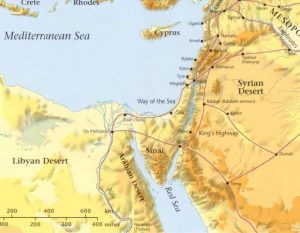by Bruce Okkema
Now Sarai, Abram’s wife had borne him no children, and she had
an Egyptian maid whose name was Hagar. So Sarai said to
Abram, “Now behold, the LORD has prevented me from bearing
children. Please go in to my maid; perhaps I will obtain children
through her.” And Abram listened to the voice of Sarai.
– Genesis 16:1-2
 The story of Hagar does not seem so strange to those who live in cultures where polygamy is common. In fact, our friends in Africa have explained the dynamics of this account because they still see it occuring within their present surroundings.
The story of Hagar does not seem so strange to those who live in cultures where polygamy is common. In fact, our friends in Africa have explained the dynamics of this account because they still see it occuring within their present surroundings.
God had promised to make Abram into a great nation, but it wasn’t happening. He had already asked Abram once to do the cultural equivalent of giving up his inheritance by moving away from his country, his relatives, and his father’s house as we read in Genesis 12:
“Now the LORD said to Abram, “Go forth from your country, and from your relatives and from your father’s house, to the land which I will show you; and I will make you a great nation, and I will bless you, and make your name great; … ” Genesis 12:1-2
There was no greater desire than to have children, yet it had been more than ten years since they had left Abram’s father and Sarai had not become pregnant. She desperately wanted to resolve this situation so she did something which was common, offering her maidservant to her husband for the purpose of bearing children. Abram did not see this as irregular and went ahead with the suggestion.
We could discuss at some length the implications of what can result when we lose our patience with the Lord and take things into our own hands, but you can read the story in the rest of chapter 16. Our friends tell us that there is always inequity, fighting, mistreatment, or at least tension within families with more than one wife, and the children are usually put at odds.
Within our story, this began occurring already when Hagar became pregnant (verse 4). Sadly, the result was Hagar’s banishment to death in the wilderness. Can you imagine how she must have felt? She was a foreigner in a strange land, she had been faithful to Abram, faithful to Sarai, faithful to her yet unborn son, she had been used as a piece of property, and now she had been discarded like a piece of unwanted refuse.
The Lord had not been ignoring her abusive treatment and he sent his angel to her at her lowest moment. Not only did he bring comfort and deliverance, he promised her the greatest blessing she could imagine … that she would become the mother of a great nation as well!
Moreover, the angel of the LORD said to her, “I will greatly multiply your descendants so that they will be too many to count.” The angel of the LORD said to her further, “Behold, you are with child, and you will bear a son; and you shall call his name Ishmael, because the LORD has given heed to your affliction. – Genesis 16:10-11
We must never give up hope! Oh what a faithful, righteous, blessing God we serve!
Photocred: Rama


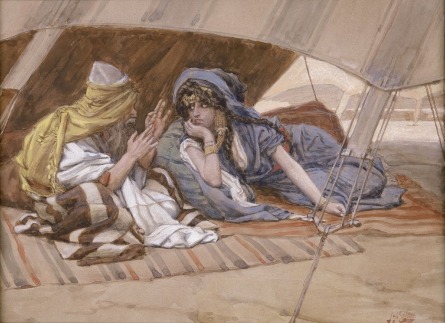
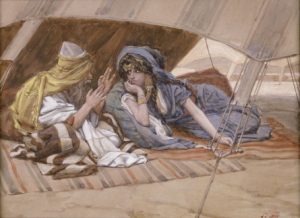
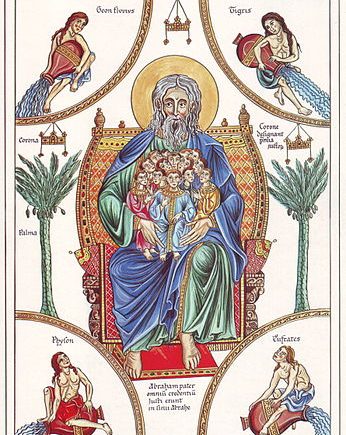
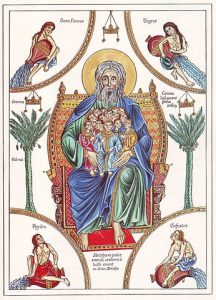


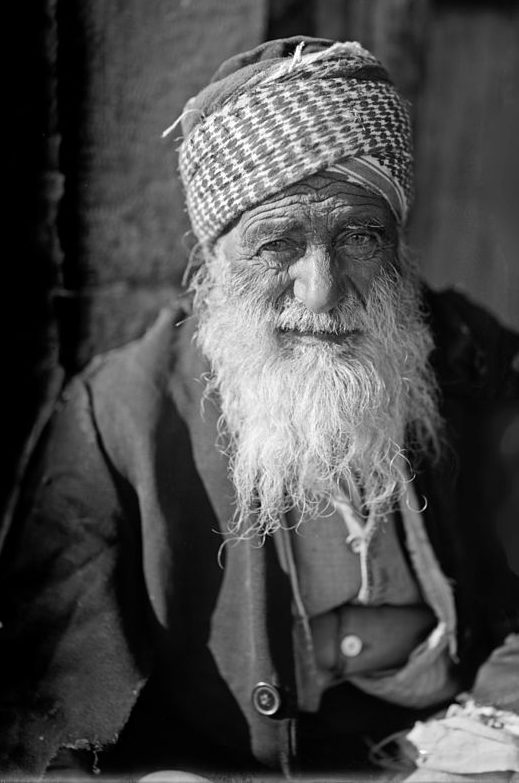 Abraham and Sarai and their little group were taking a huge risk when they left all for the Lord. The fact that they were childless at 75 when they heard the call may have made them wonder if a God who didn’t wouldn’t give them children up until now would do so now. And then 25 more years of childlessness didn’t do anything to make them feel more confident that God would fufill His promises.
Abraham and Sarai and their little group were taking a huge risk when they left all for the Lord. The fact that they were childless at 75 when they heard the call may have made them wonder if a God who didn’t wouldn’t give them children up until now would do so now. And then 25 more years of childlessness didn’t do anything to make them feel more confident that God would fufill His promises.